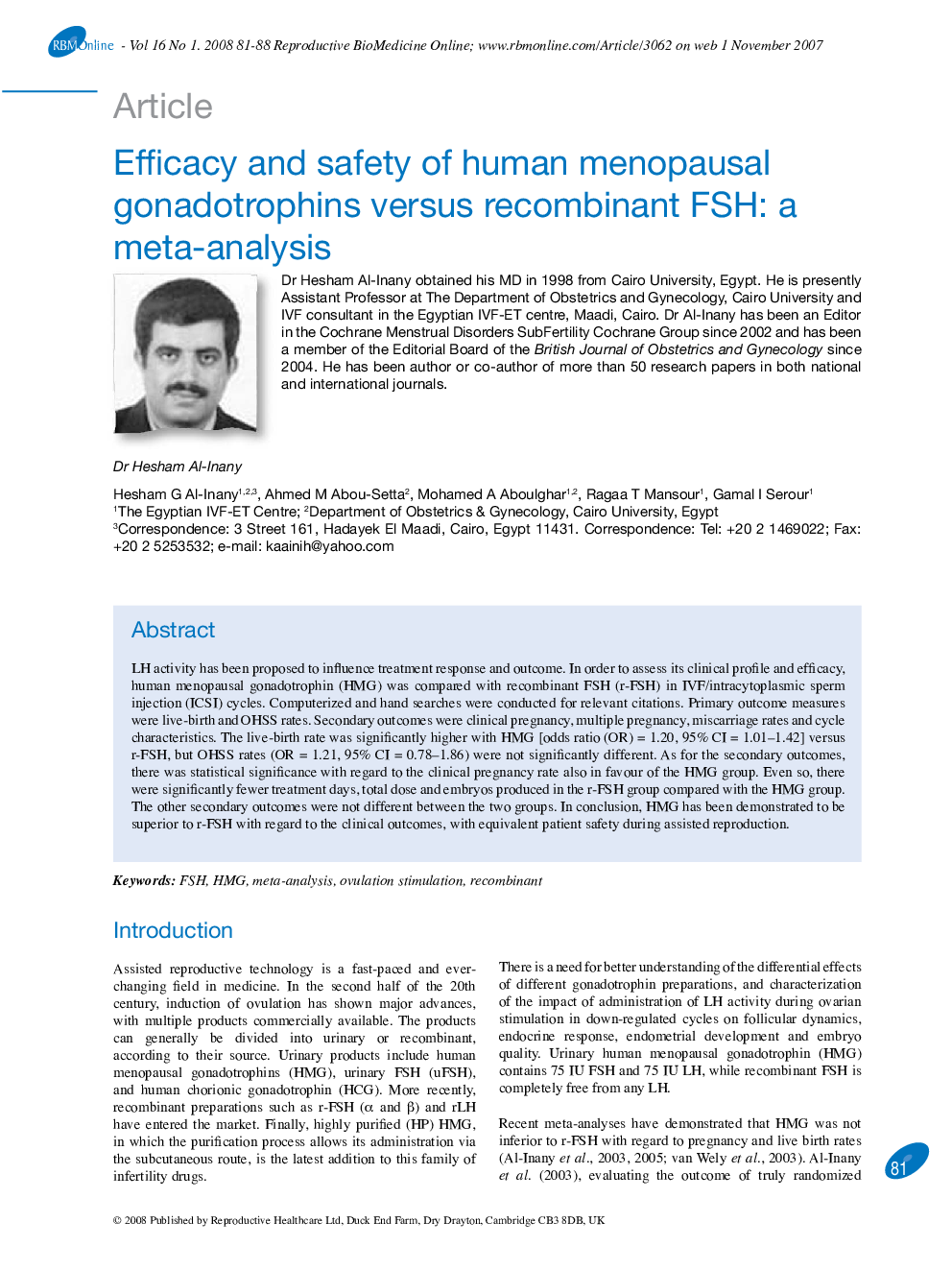| Article ID | Journal | Published Year | Pages | File Type |
|---|---|---|---|---|
| 3972885 | Reproductive BioMedicine Online | 2008 | 8 Pages |
LH activity has been proposed to influence treatment response and outcome. In order to assess its clinical profile and efficacy, human menopausal gonadotrophin (HMG) was compared with recombinant FSH (r-FSH) in IVF/intracytoplasmic sperm injection (ICSI) cycles. Computerized and hand searches were conducted for relevant citations. Primary outcome measures were live-birth and OHSS rates. Secondary outcomes were clinical pregnancy, multiple pregnancy, miscarriage rates and cycle characteristics. The live-birth rate was significantly higher with HMG [odds ratio (OR) = 1.20, 95% CI = 1.01–1.42] versus r-FSH, but OHSS rates (OR = 1.21, 95% CI = 0.78–1.86) were not significantly different. As for the secondary outcomes, there was statistical significance with regard to the clinical pregnancy rate also in favour of the HMG group. Even so, there were significantly fewer treatment days, total dose and embryos produced in the r-FSH group compared with the HMG group. The other secondary outcomes were not different between the two groups. In conclusion, HMG has been demonstrated to be superior to r-FSH with regard to the clinical outcomes, with equivalent patient safety during assisted reproduction.
